
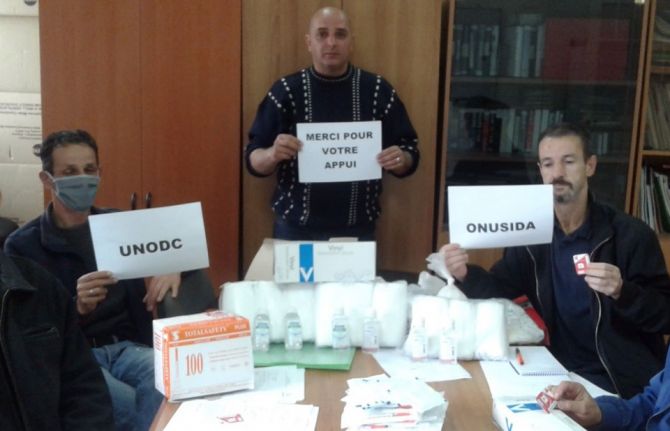
COVID-Blog
Ensuring continuity of HIV combination prevention for people who use drugs in Algeria
30 April 2020
30 April 2020 30 April 2020UNAIDS and UNODC are ensuring that people who use drugs in Algeria continue to be reached with HIV prevention and testing services amidst the coronavirus crisis.
With technical and financial support from UNAIDS and UNODC, the Ministry of Health together with 3 civil society organizations (AIDS Algerie, ANISS and APCS) are providing HIV prevention services to 908 people who use drugs in 3 sites of the country.
As part of the initiative, eighteen community health workers have received telephone cards, sanitizers, masks, and gloves to be able to safely provide HIV prevention and testing services as well as information about the COVID-19. The community health workers go twice a week to the NGOs premises to pick up the prevention materials. Then, they coordinate the provision of services and fix appointments by phone with the people who use drugs near their residences so they can provide them with HIV prevention services such as information materials, clean syringes, and condoms.

COVID-Blog
Ensuring that all people who use drugs and are living with HIV have access to treatment in Bangladesh
30 April 2020
30 April 2020 30 April 2020The AIDS/STD Programme in Bangladesh brought all stakeholders together to discuss the challenges posed by COVID-19 and the required measures for people living with HIV (PLHIV) and other key populations. UNAIDS and partners are working with the government to ensure that all PLHIV, including those among refugee populations, receive a three-month supply of antiretroviral (ARV) drugs.
UNAIDS also worked with WHO and Save the Children to build the capacity of case workers to ensure that all people who use drugs and are living with HIV, including those who are homeless, receive antiretroviral treatment regularly. Each case worker provides treatment to around fifteen to twenty people who use drugs and are living with HIV by either leaving weekly doses of HIV treatment and four-day supply of opioid substitution therapy (OST) with a caregiver for those who have a home or by paying daily visits to those living on the streets and taking them to the drop in centers to get the ARVs and OST.
Furthermore, UNAIDS is supporting the Network of People who Use Drugs (NPUD) in their efforts to generate funds through in-kind personal donations to help homeless people who use drugs and are living with HIV to access food and other livelihoods during the COVID-19 response.

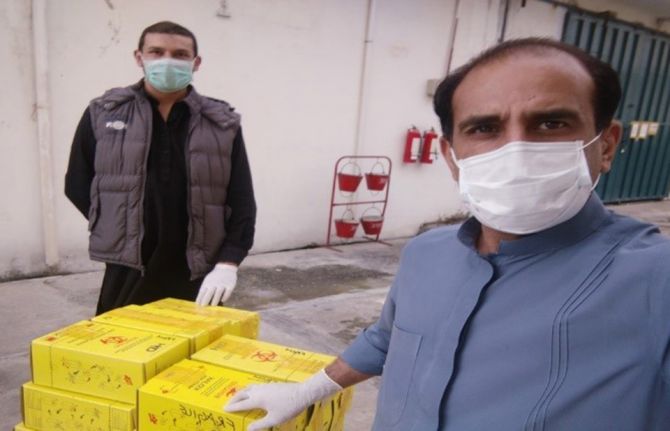
COVID-Blog
Keeping people in Pakistan on HIV treatment
29 April 2020
29 April 2020 29 April 2020The Pakistan Association of People Living with HIV (APLHIV) developed together with UNAIDS and Pakistan’s National AIDS Control Programme Common Management Unit for AIDS, TB and Malaria an Emergency Response Cell (ERC) in March. The ERC is working to ensure that everyone on HIV treatment gets an adequate supply of antiretroviral therapy, often delivered to their door.
The ERC’s Costed Contingency Plan groups all people living with HIV who are on treatment into three groups: red (people with a supply of antiretroviral therapy for less than two weeks); yellow (people with a supply of antiretroviral therapy for a month); and green (people with a supply of antiretroviral therapy for more than a month). These groups are then used to prioritize who receives packages of antiretroviral therapy, provided by the National AIDS Control Programme, through APLHIV and the Provincial AIDS Control Programme. The National AIDS Control Programme, through its Procurement and Supply Management Unit, provides packages of antiretroviral therapy to APLHIV, which are delivered by APLHIV through courier services to the doorsteps of people living with HIV who are unable to reach treatment centres.

COVID-Blog
Ensuring access to livelihoods for sex workers in Bangladesh
29 April 2020
29 April 2020 29 April 2020There are more than 100,000 female sex workers in Bangladesh and, as with other vulnerable populations, restrictions imposed in response to the coronavirus pandemic are disrupting their access to livelihoods.
Some brothel-based sex workers are accessing support from the local government, however, less than 4,000 of them live in brothels.
UNAIDS and UNICEF have been supporting the network of sex workers to develop income generating entrepreneurships run by sex workers to be able to compensate the loss of income due to COVID-19.
Also, through the network of sex workers and in collaboration with the Bangladesh Country Coordinating Mechanism (BCCM), UNAIDS has supported 23 community-based organizations of sex workers to procure protective commodities such as soap, masks, etc. during the initial stages of the response to COVID-19.

COVID-Blog
UNAIDS Goodwill Ambassador for Asia and the Pacific Pia Wurtzbach steps up to support the response to COVID-19
28 April 2020
28 April 2020 28 April 2020Pia Wurtzbach, Miss Universe 2015 and UNAIDS Goodwill Ambassador for Asia and the Pacific, has stepped up to support the COVID-19 response in The Philippines and in the region.
Among other initiatives, she has started a fundraising campaign with the aim of distributing 25,000 surgical and KN95 face masks to different hospitals in Metro Manila. So far 19,000 face masks have been distributed to more than 20 hospitals.
Ms Wurtzbach also participated in the online concert #RiseAsOnePH organized by LoveYourself in collaboration with UNAIDS and partners in support of the people on the frontlines and communities most affected by the pandemic. Together with Catriona Gray, Miss Universe 2019, Ms Wurtzbach emphasized the importance of guaranteeing access to HIV services, particularly HIV prevention, amidst the coronavirus crisis.
Finally, Ms Wurtzbach has taken her advocacy work to her social media platforms where she has been sharing and amplifying key messages and guidance on how to prevent COVID-19 and HIV.

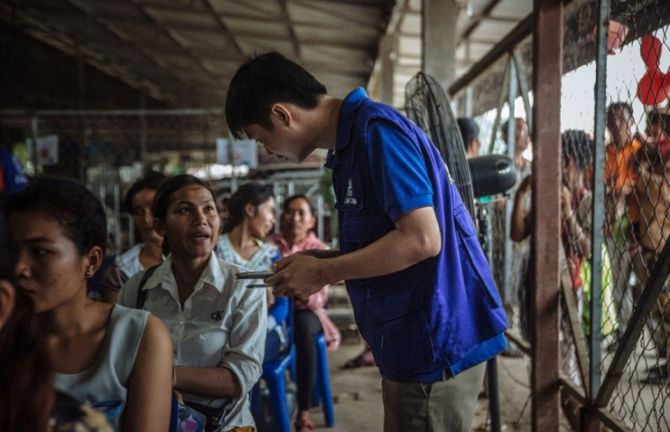
COVID-Blog
Providing protection and support to returning migrants in Cambodia
27 April 2020
27 April 2020 27 April 2020Due to the COVID-19 pandemic many businesses have closed in Thailand. As a result, more than 90,000 Cambodian migrant workers have lost their employment and have come back home.
The United Nations is working closely with Government of Cambodia to ensure that migrant workers and their families receive immediate assistance in terms of shelter and food. UNAIDS, together with WHO, UNICEF, and UNFPA is supporting the design of a rapid health assessment of returning migrants led by IOM. The assessment will look at the health needs of returning migrants, including access to HIV prevention and treatment services.
In addition, the United Nations and partners are working to include migrants in the social protection support package that is being proposed as part of the exceptional measures created by the Government to mitigate the impact of COVID 19 among vulnerable groups.

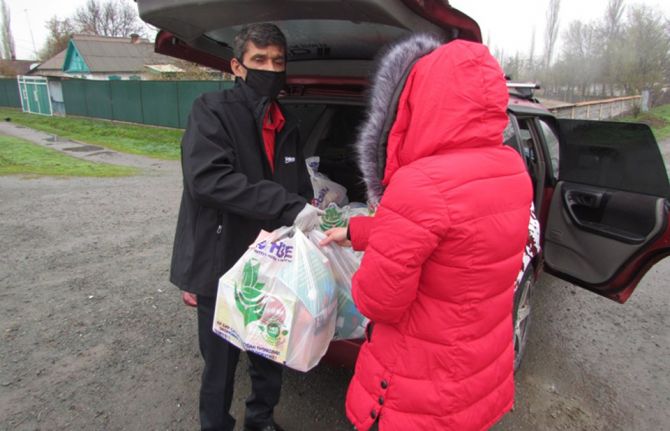
COVID-Blog
Helping people living with HIV with food supplies in Kyrgyzstan
27 April 2020
27 April 2020 27 April 2020The UNAIDS Country Office in Kyrgyzstan, with the support of a Russian technical assistance programme, is organizing the delivery of food packages, which will supplement other social assistance available for people living with HIV, to 130 families of people living with HIV who have been the most affected by their loss of earnings. Apart from the food, the packages also contain colouring books, marker pens and watercolour sets for the children of people living with HIV, to help them get through the lockdown.
“We hope that this small help will go some way to enabling people living with HIV to remain on treatment,” said Meerim Sarybaeva, the UNAIDS Country Manager for Kyrgyzstan.

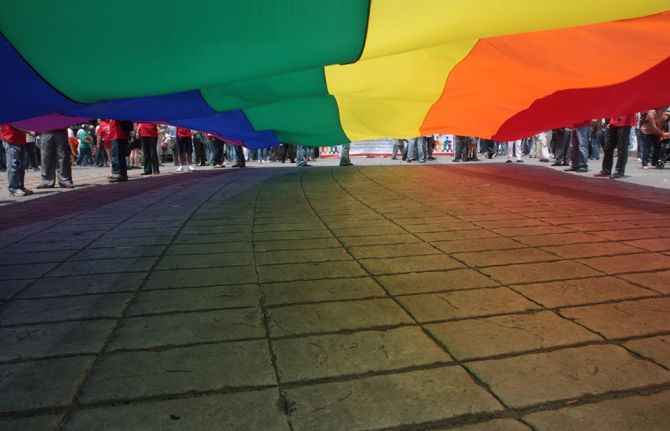
COVID-Blog
UNAIDS and MPact are extremely concerned about reports that LGBTI people are being blamed and abused during the COVID-19 outbreak
27 April 2020
27 April 2020 27 April 2020UNAIDS and MPact Global Action for Gay Men’s Health and Rights are extremely concerned that lesbian, gay, bisexual, transgender and intersex (LGBTI) people are being singled out, blamed, abused, incarcerated and stigmatized as vectors of disease during the COVID-19 pandemic. UNAIDS and MPact are also deeply troubled that this discriminatory action is compounding the challenges that LGBTI people already face in accessing their rights, including safe and quality health services.
“HIV has taught us that violence, bullying and discrimination only serve to further marginalize the people most in need,” said Winnie Byanyima, Executive Director of UNAIDS. “All people, regardless of their sexual orientation, gender identity or gender expression, are entitled to the right to health, safety and security, without exception. Respect and dignity are needed now more than ever before.”
UNAIDS and MPact call on governments and partners to protect, support and respect the human rights of LGBTI people during the response to COVID-19

COVID-Blog
Assisting people who use drugs to receive methadone treatment during COVID-19 lockdown in Kazakhstan
24 April 2020
24 April 2020 24 April 2020Accessing opioid substitution therapy (OST) and other harm reduction services for people who use drugs in Kazakhstan is becoming increasingly difficult due to the lockdown measures imposed in response to COVID-19.
People receiving methadone maintenance therapy in Kazakhstan take their daily dosage from the narcology clinics under direct observance of health staff. However, lockdown restrictions introduced on March 18 including restrictions of movement or the elimination of public transport services are making it very difficult for people on OST to get their daily medication and are even putting them at risk of being fined for violating such restrictions.
UNAIDS in cooperation with the Kazakh Association of People Living with HIV, the Kazakhstan Harm Reduction Network, the Republican Scientific Centre for Communicable Diseases and the Republican Scientific Centre of Mental Health have established a working group to find ways for people on OST to receive their essential drug treatment during the lockdown.
UNAIDS and partners put together a list of recommendation to the Ministry of Health which included the creation of special permits for people receiving OST and the extension of opening hours of the methadone sites in the morning, allowing all patients to have enough time to reach them.
As a result, people on OST have received special certificates issued by the public health authorities that allows them to go to the clinic without fear of being fined. Furthermore, a car has been made available by the government to facilitate transportation of people using methadone from their homes to the site and back for free. Additionally, patients might opt for in-patient free hospitalization in the narcology service for the period of lockdown.
UNAIDS is also advocating with the government of Kazakhstan for the establishment of a take-home methadone programme for people who use drugs to be able to receive their treatment on a weekly basis.

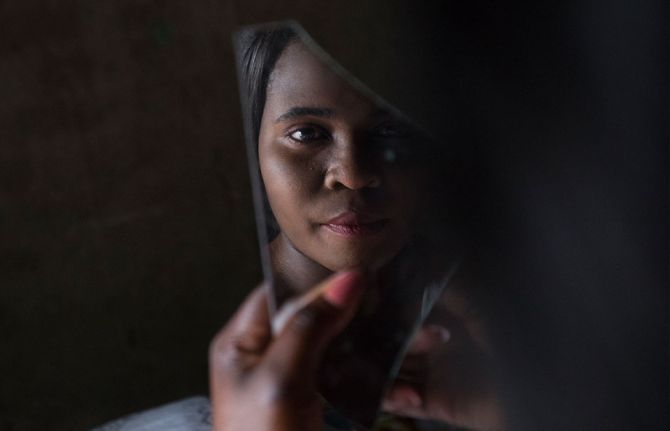
COVID-Blog
COVID-19 responses must uphold and protect the human rights of sex workers
24 April 2020
24 April 2020 24 April 2020The Global Network of Sex Work Projects (NSWP) and UNAIDS recently released a joint statement calling on countries to take immediate, critical action to protect the health and rights of sex workers during the COVID-19 pandemic.
The pandemic, as with other health crises, is exposing existing inequalities and disproportionately affecting people already criminalized, marginalized and living in precarious health and economic situations, often outside social protection mechanisms.
Around the world, sex workers are being forgotten in government responses to the COVID-19 crisis. As sex workers and their clients self-isolate, sex workers are finding themselves unprotected, increasingly vulnerable and unable to provide for themselves and their families.
